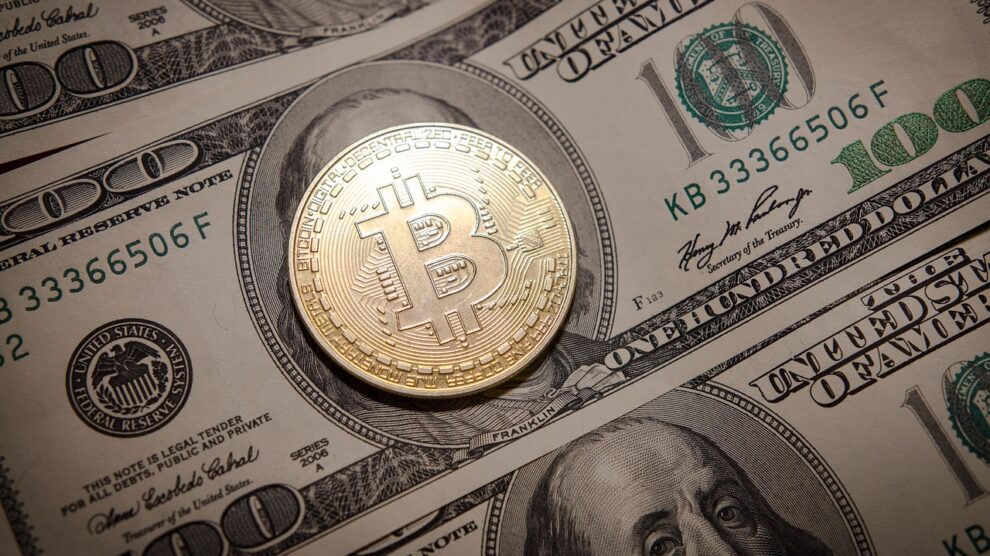Bitcoin is a digital currency that was created in 2009 by an unknown person using the alias Satoshi Nakamoto. Bitcoin is different from traditional currencies because it is decentralised; meaning, it is not controlled by any single entity. Bitcoin is also a peer-to-peer payment system, meaning that transactions take place directly between users without the need for a third party. Bitcoin payments are made using a digital wallet, which can be installed on a computer or mobile device. You need a piece of proper knowledge, and you can check bitcoin profit review.
Bitcoin has several advantages over traditional payment systems. First, Bitcoin payments are faster and more efficient than traditional payments. Second, Bitcoin payments are cheaper than traditional payments. Third, Bitcoin is more secure than traditional payment systems. Fourth, Bitcoin is global and available to anyone with an internet connection. Finally, Bitcoin is deflationary, meaning that the supply of Bitcoin is fixed and will not be increased over time.
Despite its advantages, Bitcoin has several disadvantages. First, Bitcoin is volatile, meaning that the value of Bitcoin can fluctuate greatly. Second, Bitcoin is not as widely accepted as traditional currencies. Third, Bitcoin is not as well regulated as traditional currencies. Fourth, Bitcoin can be used for illegal activities such as money laundering and drug trafficking. Finally, Bitcoin is still relatively new and there are few merchants who accept Bitcoin payments.
Despite its disadvantages, Bitcoin has the potential to revolutionize the way we pay for goods and services. I believe that Bitcoin will become more widely accepted in the future and will eventually replace traditional payment systems.
Bitcoin is a payment system introduced as open-source software in 2009 by developer Satoshi Nakamoto. The system is peer-to-peer; users can transact directly without needing an intermediary. Transactions are verified by network nodes through cryptography and recorded in a public dispersed ledger called a blockchain. Bitcoin is unique in that there are a finite number of them: 21 million.
Bitcoins are created as a reward for a process known as mining. They can be exchanged for other currencies, products, and services. As of February 2015, over 100,000 merchants and vendors accepted bitcoin as payment.
Bitcoin has been criticized for its use in illegal transactions, its high energy consumption, price volatility, thefts from exchanges, and the possibility that bitcoin is an economic bubble. Bitcoin has also been used as an investment, although several regulatory agencies have issued investor alerts about bitcoin.
The word bitcoin first occurred and was defined in the white paper that was published on October 31, 2008. It is a compound of the words bit and coin. The white paper defines bitcoin as “a protocol for electronic transactions without relying on trust”.
Gains of Bitcoin Payment System
The Bitcoin payment system is a digital currency that allows users to make secure payments online. Bitcoin is a decentralized currency, meaning there is no government or financial institution controlling it. This makes Bitcoin an attractive choice for those looking for an alternative to traditional payment systems.
Bitcoin payments are processed through a network of computers known as Bitcoin miners. Bitcoin miners use their computing power to verify and record Bitcoin transactions into a public ledger known as the blockchain. This process of verification is known as mining and rewards Bitcoin miners with new Bitcoin tokens for their efforts.
Bitcoin can be used to pay for goods and services online or you can hold on to it as an investment. The value of Bitcoin has seen significant fluctuations over the years, but overall it has been on the rise. Bitcoin is a relatively new currency and its long-term potential is still unknown, but it has the potential to revolutionize the way we pay for things online.
Conclusion
Bitcoin is a form of digital currency, created and held electronically. Bitcoin is decentralized- meaning it is not regulated by any government or financial institution. Bitcoin was created in 2009 by an anonymous person or group of people under the name Satoshi Nakamoto.
Bitcoins are transferred through a peer-to-peer network between users directly, without the need for a third party such as a bank or payment processor. Bitcoin transactions are verified by Bitcoin miners who use specialized software to solve complex mathematical problems. Miners are rewarded with bitcoins for their efforts.
Bitcoins can be used to purchase goods and services online, or they can be traded for other currencies on online exchanges. As Bitcoin becomes more widely accepted, its value is likely to continue to rise.
Bitcoin is still a relatively new form of currency, and its future remains uncertain. However, many experts believe that Bitcoin has the potential to revolutionize the way we pay for goods and services.





